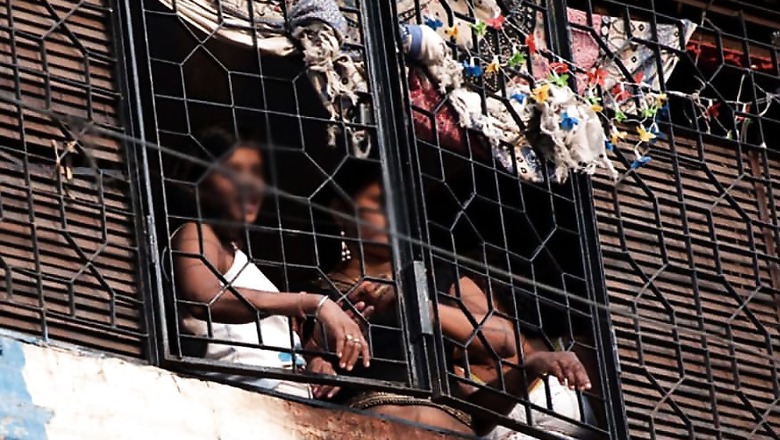
views
The Bharatiya Janata Party (BJP) is likely to repeat its 2014 success in Delhi in the keenly contested battle for its seven seats, with the News18 IPSOS exit poll predicting a sweep for the BJP. The survey predicted 6-7 seats for the BJP, with the Congress possibly winning one and Aam Aadmi Party (AAP) drawing a blank.
On the other hand, ABP Nielsen, while still predicting a win for the BJP with five seats, predicted a single seat each for the Congress and the AAP. India Today Axis predicted 6-7 seats for the BJP, Congress with 0-1 and none for AAP. Times Now CNX predicted six seats for the BJP and one for the Congress, while Chanakya News24 predicted a clean sweep for the BJP with 7 seats.
According to the Centre for the Study of Developing Societies (CSDS), voters from Bihar and eastern UP have always remained a decisive force in Delhi’s electoral politics.
But in one corner of the country’s capital, exercising the franchise in itself means a lot for its people. People know it as GB Road, which is a part of the Chandni Chowk parliamentary constituency.
Among the migrated population of Delhi, there are thousands living and working in GB Road — the sex workers. Everyone in some or the other way has been forced into the flesh trade.
Radhika (38) was duped by her lover, who sold her to one of the brothels here. Scared of the threats that came thereafter, she agreed to “compromise”.
“Those who deny, go through extreme torture,” says Radhika, who loves watching crime shows. The cruelty of the world inside is nowhere close to what they show in the TV, she adds.
Delhi has changed by leaps and bounds since Independence. However, even as the city goes to elect its seventeenth parliamentarians, lives in the brothels of GB Road have remained unchanged.
The light of democracy and subsequent citizens' rights have not been able to seep into the walls of the ‘kothas’ that are running here since the pre-Independence era.
“Most of the trafficked girls here are like me — eloped with lovers, then deceived by them and sold here. There are also young girls, including teenagers, whose poor parents sell them for a mutually decided time period. During this period, brothel runners become the owners of the girls’ bodies. After that, they send them back to their respective villages with some cash in hand and/or some jewellery,” says Radhika, adding that many come back to continue their earning. But, this time, they work on their own conditions.
There are also women like Ranjita (38) who followed her mother’s footsteps while joining the profession. Ranjita is no more a sex worker, however. Guided by an NGO, Ranjita, Mohita (30) and Farida (40) cook food in the morning for street children.
However, in the evening, they get back to GB Road, where they still reside and perform ‘mujra’. This is how they run their ‘families’ where the men or their partners live with their lawful families, but visit these women often.
“We choose to do this because we do not know what else to do,” says Baby (36).
A Supreme Court panel formed in 2011 had recommended that the government do the needful for the sex workers’ upliftment. Among the recommendations were to provide them with identity documents, linking them and their children with welfare schemes, rehabilitate them by providing alternative livelihood opportunities.
Gitanjali Babbar, founder and director of Kat Katha, a non-governmental initiative working for the sex workers community, says, “To stand in queues to get the documentation done and finally to be able to consult the doctors is a matter of half or more than half a day. Most of the sex workers would never be allowed to stay out for that long.”
Radhika shares that the Delhi government with the help of some NGOs has been trying to look after the health issues of the sex workers by educating them on STDs, providing them with condoms and organising regular check-up camps.
However, Radhika suspects that young girls, especially those under-18, remain in the shadow. “There are cells inside the brothels, like those behind regular walls, or underground where the young girls are kept.”
Even as the parliamentary election was underway, no politician seemed to be bothered about them. However, many of the sex workers have voter ID cards and they made sure to exercise their franchise. “No one has ever come to seek votes from us, but we still vote,” said Mohita.
Due to limited exposure to television, many do not have any idea about surgical strikes or the attack in Pulwama. They also completely unaware of most of the Centre’s schemes, except demonetisation.
“Modi’s notebandi had reduced customers for us. There were days together without any business,” said Mohita who does not know that Harsh Vardhan represented her constituency in Parliament for the last five years. She came to know about Prime Minister Narendra Modi during the noteban episode.
Neither Modi’s Skill India campaign nor the Delhi government’s education reform has touched the lives of these women. They have not come across any Mohalla Clinic, nor do they bother to know about statehood.
“Regardless of whoever forms the government, the situation remains the same for us. None of the leaders, be it Vardhan, (Kapil) Sibal or JP Agarwal, has done anything for us. Yet, we always vote for the Congress since we get most exploited whenever there is a BJP government. See, how they have increased the cylinder’s cost now,” said Ranjita.
The chairperson of the Delhi Commission for Women, Swati Maliwal, has repeatedly proposed the shutting down of these brothels to prevent human trafficking.
“That way, they would only take away our source of earning. What about those who are doing it from their home? Everyone targets us as our workplace is in the open,” said Mohita.
The women complain that as part of vote bank politics, the politicians propose to uproot sex workers from the GB Road.
“We also do not want to do this. But who will employ us after knowing our background. And, how much can we hide?” asked Farida, who desires to open her own restaurant or a ‘dhaba’ if given a choice.
Many are also scared of the exploitation in the ‘outer world’. “What happened to Damini (Nirbhaya) has terribly frightened us,” added Radhika.
Farida was in the flesh trade, when her husband fell in love with her. He helped her escape from this place and the two got married. But, after his death and after several attempts to get some work in the mainstream, she had to go back to the same dark lanes to run the family.
She claims that there are many like her. She has not disclosed about her profession to her daughter and son-in-law. Until her daughter got married, Farida kept her with her in-laws and sent money for her education. She also visited her often.
“Give us even a one-room house, train us or give us a job, we will be happy to leave the place,” said Radhika.
These women have never approached the elected leaders with their pleas. “We have heard from those who did that the leaders do not even let them enter their office,” said Baby.
(All names have been changed to maintain confidentiality.)




















Comments
0 comment